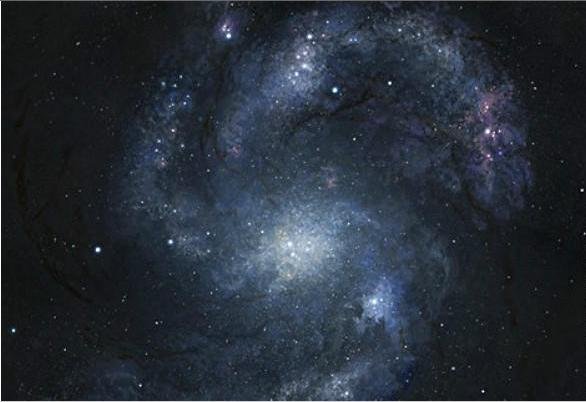An artist’s rendering of galaxy BX442 and its companion dwarf galaxy (upper left). Credit: Joe Bergeron/Dunlap Institute for Astronomy & Astrophysics, University of Toronto
LOS ANGELES, July 18 (UPI) -- U.S. and Canadian astronomers say they've seen a spiral galaxy born in the early universe billions of years before that kind of galaxy should have formed.
The distant spiral galaxy, observed by the Hubble Space Telescope, is being seen as it existed roughly 3 billion years after the big bang since light from this part of the universe has been traveling to Earth for about 10.7 billion years.
"As you go back in time to the early universe, galaxies look really strange, clumpy and irregular, not symmetric," study co-author Alice Shapley, a UCLA associate professor of physics and astronomy, said. "The vast majority of old galaxies look like train wrecks. Our first thought was, why is this one so different, and so beautiful?"
The mix of galaxy structures in the early universe was quite different, with a much greater diversity and larger fraction of irregular galaxies, Shapley said in a UCLA release Wednesday.
So the graceful form of this early galaxy has astronomers expressing surprise.
"The fact that this galaxy exists is astounding," lead study author David Law of the University of Toronto said. "Current wisdom holds that such 'grand-design' spiral galaxies simply didn't exist at such an early time in the history of the universe."
A "grand design" galaxy has prominent, well-formed spiral arms.
Law and Shapley think the answer to the unexpected shape may have to do with a companion dwarf galaxy and the gravitational interaction between the two galaxies.















